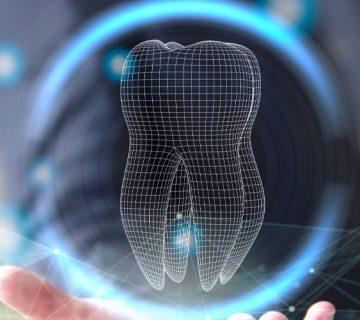What To Look for in a Dentist
 Take your time choosing a dentist; don’t wait for an emergency! There are several things to consider when looking for a dentist.
Take your time choosing a dentist; don’t wait for an emergency! There are several things to consider when looking for a dentist.
Location and office hours– Choose a dentist close to home or work. This will make it easier to schedule visits and to arrive on time. Also, make sure that the dental office is open on the days and at the times when you are able to schedule an appointment.
Cost–Does the dentist accept your insurance? Does the dentist offer multiple payment options (credit cards, personal checks, payment plans)? If your insurance plan requires referrals to specialists, can this dentist provide them?
Also, be aware that costs vary by practice. If you can, get estimates of what your dentist might charge for common procedures such as fillings, crowns or root canal therapy. Even if you have dental insurance, you may be paying part of the costs yourself.
Personal comfort–One of the most important things to consider when you choose a dentist is whether you feel comfortable with that person. Are you able to explain symptoms and ask questions? Do you feel like the dentist hears and understands your concerns? Would you feel comfortable asking for pain medicine, expressing your fear or anxiety, or asking questions about a procedure?
Professional qualifications–The dentist’s office should be able to tell you about the dentist’s training. The office also should have policies on infection control. If the staff seems uncomfortable answering your questions, or you are uncomfortable with their answers, consider finding another dentist. You can also obtain information about a dentist’s qualifications from the local dental society or your insurance carrier. Most organizations of specialty dentists also list their members and qualifications.
Emergency care–Find out what happens if you have an emergency, either during normal office hours, or at night or on a weekend. A dentist should not refer you to a hospital emergency room. You should be able to contact your dentist (or a suitable substitute) at any time by calling an answering service, cell phone or pager.
State licensing boards–Most state dental boards have a website where you can verify if your dentist is licensed. The website also should tell you whether there have been any disciplinary actions taken against him or her.
How To Find a Dentist
Here are some suggestions on finding dentists to evaluate.
People to ask:
- Your friends and family — Friends and family members are a great resource. They can tell you about the personality of the dentist and office staff, and answer questions. Here are some good questions to ask:
- How well does the dentist explain treatment options?
- How long do you have to sit in the waiting room?
- Do you feel comfortable asking questions?
- How does the office handle emergencies?
- How long do you have to wait for an appointment?
- How are bills handled?
- Your current dentist — If you are moving, ask your current dentist if he or she knows of someone to recommend near your new home.
- Your physician — Your physician may be able to provide some names of dentists.
Places to call:
- Your dental insurance company — Your insurer will provide names and contact information for dentists in your area who take part in the company’s dental plans. Usually you will have to pay a lower fee if you use these dentists. Your insurer also may have other information, such as whether the dentist accepts new patients.
- Your state’s dental association — Each state has a dental association that can provide names of dentists who are members of the American Dental Association (ADA). ADA membership is voluntary. Most dentists are members. However, ADA membership does not mean a higher quality of care.
- Your local hospital – Some hospitals have their own dental clinics, or can recommend local dentists.
- The nearest dental school —A dental school in your area can be a great resource. Most dental schools have clinics that accept new patients. The care given at these clinics is excellent. The cost is often lower than visiting a private-practice dentist. Usually, routine care at a dental school clinic is provided by dental students and residents (dentists who are completing advanced training). They are supervised by dentists who teach at the dental school. For complicated and newer procedures, these clinics offer state-of-the-art care.



